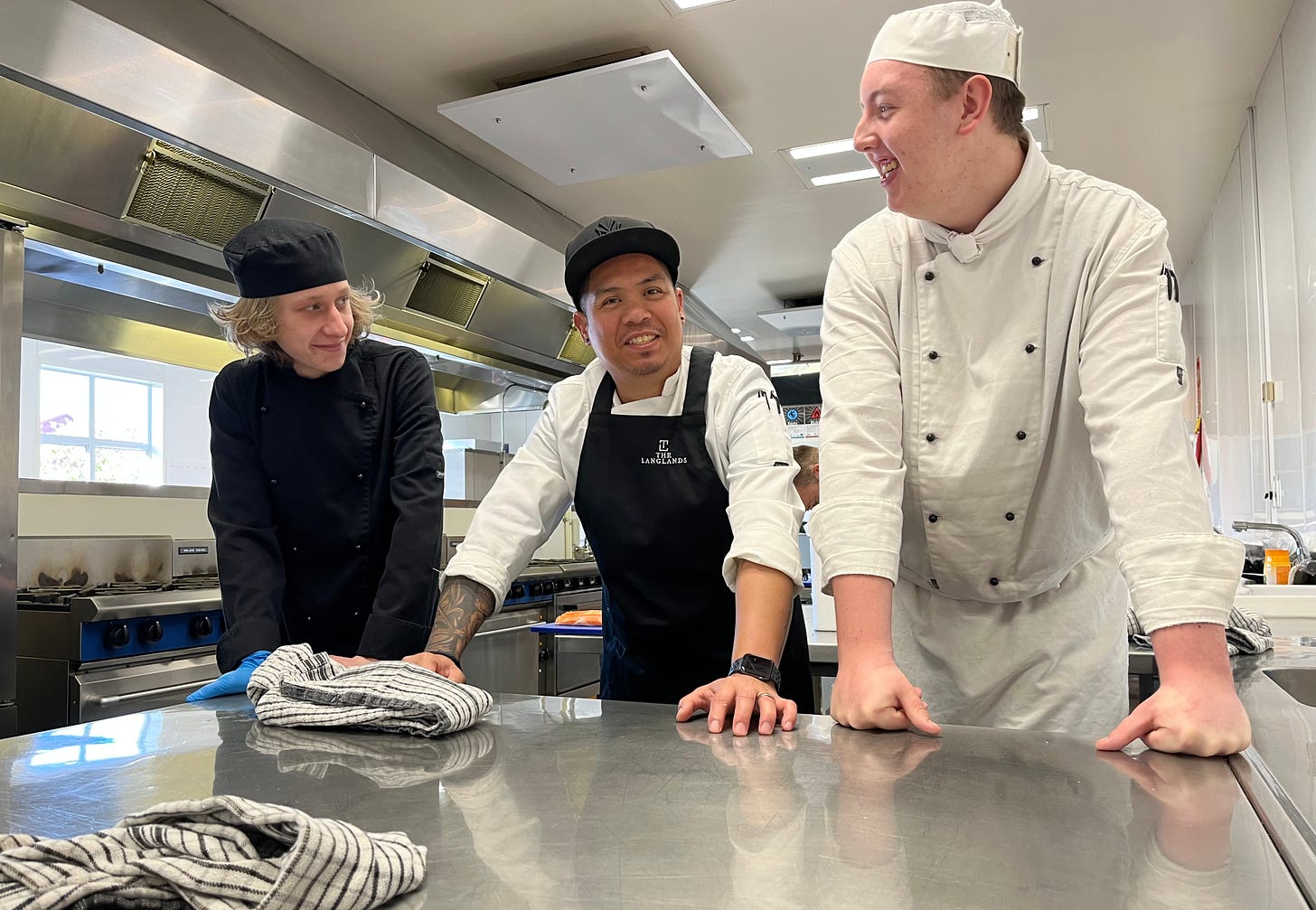The career path that's got that bit more lucrative
“There has always been this thing that hospitality is low pay, well that’s gone.”

Some in the hospitality sector joke that it’s now the chefs who interview prospective employers, rather than the other way around.
Graham Hawkes worked in the hospitality industry for 57 years and says the shortage of chefs is a global problem at the moment.
“It’s completely unusual. In all our years we never had to go looking for staff, there were always people wanting jobs.”
Immigration processing in New Zealand had added to the challenge, Hawkes says.
The shortage has made life difficult for those operating hospitality establishments. Some have been forced to close, others have reduced opening hours because of staffing shortages.
However, the flip side to all of that is choosing a career in hospitality has just become that bit more lucrative.
“There has always been this thing that hospitality is low pay, well that’s gone,” Hawkes says.
Hawkes has always been an advocate for the hospitality sector, in terms of it being a good career choice. But there’s now even more reason to push the case.
“Hospitality has good and bad, the same as any other industry has. Yes, there are places that you possibly wouldn’t want to work, but 90% are places you would want to work because they will look after you. They will look after you very, very well in hospitality.”
“People think it’s anti-social, they don’t want to work weekends. Well, my friends don’t bother with that. They come out and we have great days on a Monday or a Tuesday, or whatever day we are free.
“It’s not anti-social, the social side of hospitality is right there in the kitchen, or front of house, wherever you want to be, it’s there. It just needs to be brought out in people sometimes.”
While Hawkes is retired by name, he isn’t in reality.
He still wears many hats, one is as an Invercargill Licensing Trust board member, another with Hospitality New Zealand.
Hawkes remains committed to helping the next generation of culinary stars emerge.
That was highlighted at the weekend when he played a lead role in organising the popular Famous Young Chefs Luncheon in Invercargill.
The event catered for 160 people at Hansen Hall on Sunday and most importantly Southland’s trainee chefs were provided an ideal boost to their development.
Through Hawkes’ connections, eight leading New Zealand chefs volunteered to come to Invercargill for the event.
“They want to show people want they’ve learned and pass that on.”
They worked with about 30 young Invercargill chefs to put together a five-course experience.
Included were four young Invercargill Licensing Trust chefs Caleb McCall (Waxys Irish pub), Jacob Kennedy (The Langlands), Jose Celestino (The Langlands), and (James Bayer – Kelvin Hotel).
“It’s a pathway for further training and professional development for young chefs in training in Invercargill,” Hawkes says.
Sunday was the third year it was held. The first year it attracted 50 people, 120 the second, and 160 diners on Sunday.
Having young chefs work alongside some top-line New Zealand chefs is the prime reason for organising such an event.
Although Hawkes says it is also an opportunity to showcase Southland produce to both those dining and also the chefs who were working with it.
The major sponsor was Alliance, through its Pure South brand. It donated the meat while much of the other produce was also donated.
“I’ve always said Southland produces the best in the world, why don’t we push it, why don’t we get it on all the menus?
“In the back of my mind, I’ve always thought New Zealand should be a culinary destination. I know we do well with tourism but add culinary to that as well.”
Sunday’s event at Hansen Hall put a full stop on the Savour the South promotion which run throughout April and promoted Southland as a place to eat, drink, stay, and play.




